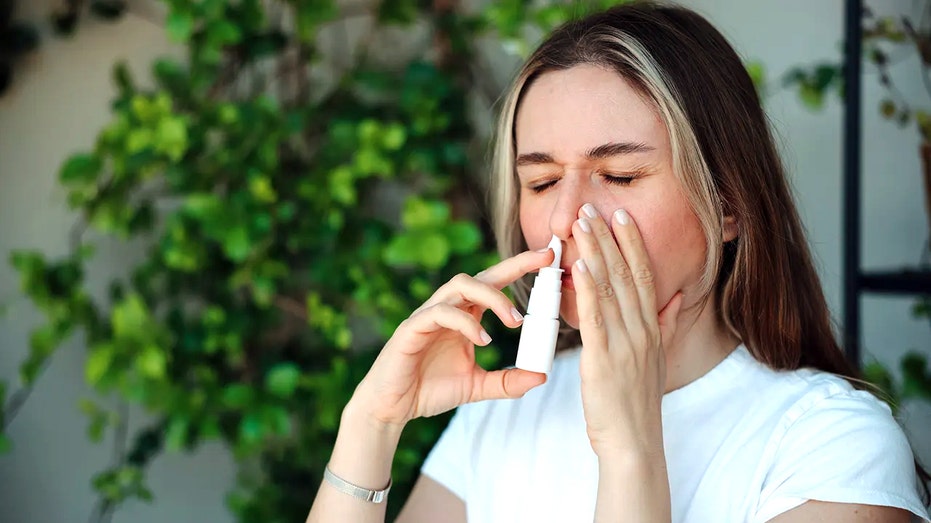A new study has discovered another way to potentially prevent COVID-19.
Researchers at Saarland University in Germany headed a clinical trial that found a nasal spray could reduce the risk of coronavirus infection by two-thirds.
The phase 2 study, published in JAMA Internal Medicine, ran from March 2023 to July 2024 at Saarland University Hospital.
NEW COVID VARIANT MAY CAUSE ‘RAZOR BLADE THROAT’ — HERE’S WHAT TO KNOW
The 450 healthy adult participants were randomly assigned to receive either the azelastine nasal spray or a placebo, three times per day for 56 days.
The researchers conducted SARS-COV-2 rapid antigen testing twice a week to diagnose infection. People who had symptoms but received negative antigen test results underwent multiple PCR tests for respiratory viruses.
Among the 227 individuals who received the azelastine nasal spray, rates of confirmed COVID infection were “significantly lower” at 2.2%, compared with 6.7% for the placebo group.
CLICK HERE TO SIGN UP FOR OUR HEALTH NEWSLETTER
The researchers also noted an increase in the period before infection for the people taking azelastine. In these patients, the medication was linked to a lower rate of PCR-confirmed symptomatic infections and fewer confirmed rhinovirus infections (the primary cause of the common cold).
“In this single-center trial, azelastine nasal spray was associated with reduced risk of SARS-CoV-2 respiratory infections,” the researchers wrote.
Azelastine has been available as an over-the-counter treatment for hay fever, according to a press release from Saarland University, and has previously been suggested to have an anti-viral effect against COVID and other respiratory viruses.
Lead trial researcher Professor Robert Bals, director of the Department of Internal Medicine at Saarland University Medical Center, commented in a statement that the trial has demonstrated azelastine’s impact in a “real-world setting.”
“Azelastine nasal spray could provide an additional, easily accessible prophylactic to complement existing protective measures, especially for vulnerable groups, during periods of high infection rates or before traveling,” he went on.
For more Health articles, visit www.foxnews.com/health
“Our results highlight the need for larger, multicenter trials to continue exploring the use of azelastine nasal sprays as an on-demand preventive treatment, and to examine its potential effectiveness against other respiratory pathogens.”
Fox News Digital reached out to the researchers for comment.


